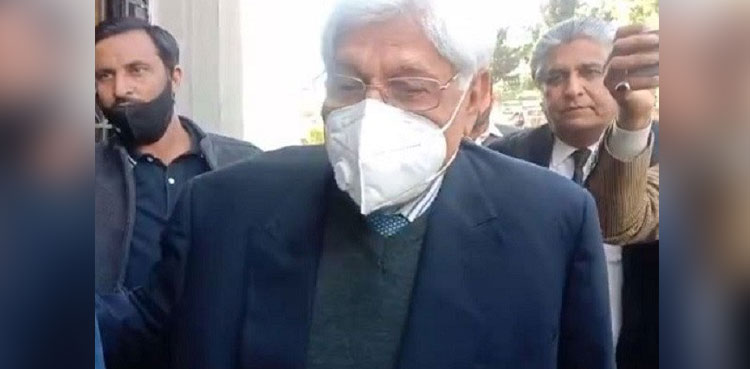ISLAMABAD: The Islamabad High Court (IHC) issued on Friday a written order in the contempt of court case against former chief judge of Gilgit Baltistan, Justice (retd) Rana Shamim, journalist Ansar Abbasi and others.
In a 12-page long order, Chief Justice Athar Minallah observed that, “the acts of the alleged contemnors, prima facie, constitute committing criminal contempt.”
Also Read: IHC not satisfied with ‘evasive’ replies of Rana Shamim, Ansar Abbasi
The court fixed the indictment date for Jan 7 and appointed Attorney General for Pakistan (AGP) Khalid Javed Khan as a prosecutor in the case.
“The alleged contemnors [publisher and editor-in-chief of Jang Group Mir Shakeelur Rehman, senior journalist Ansar Abbasi and resident editor Amer Ghouri] appear to believe that as ‘messengers’ they have absolute freedom to publish a document in the form of an affidavit regardless of the truth of its contents or the intent or effect in the context of the right to fair trial of the litigants and due administration of justice in relation to pending proceedings,” the order read.
“While jealously guarding freedom of expression and free press, it is the simultaneous duty of the Court to protect the solemnity of pending judicial proceedings and the right to a fair trial of the litigants and their confidence in the due administration of justice.”
Also Read: IHC decides to indict Rana Shamim, others after affidavit opened
Justice Minallah noted that, “freedom of expression is not an absolute right and for a journalist it carries with it responsibilities and duties.”
“Freedom of expression is subject to acting responsibly and respecting other people’s rights. The law of contempt is not meant to protect the judge nor his/her dignity but it is, rather, essentially concerned with interference with the administration of justice.”
“Freedom of expression does not license a journalist or a publisher even inadvertently or unintentionally to facilitate influencing of pending proceedings or casting aspersions on judges in the garb of an affidavit which does not form part of any judicial proceedings.”


Leave a Comment